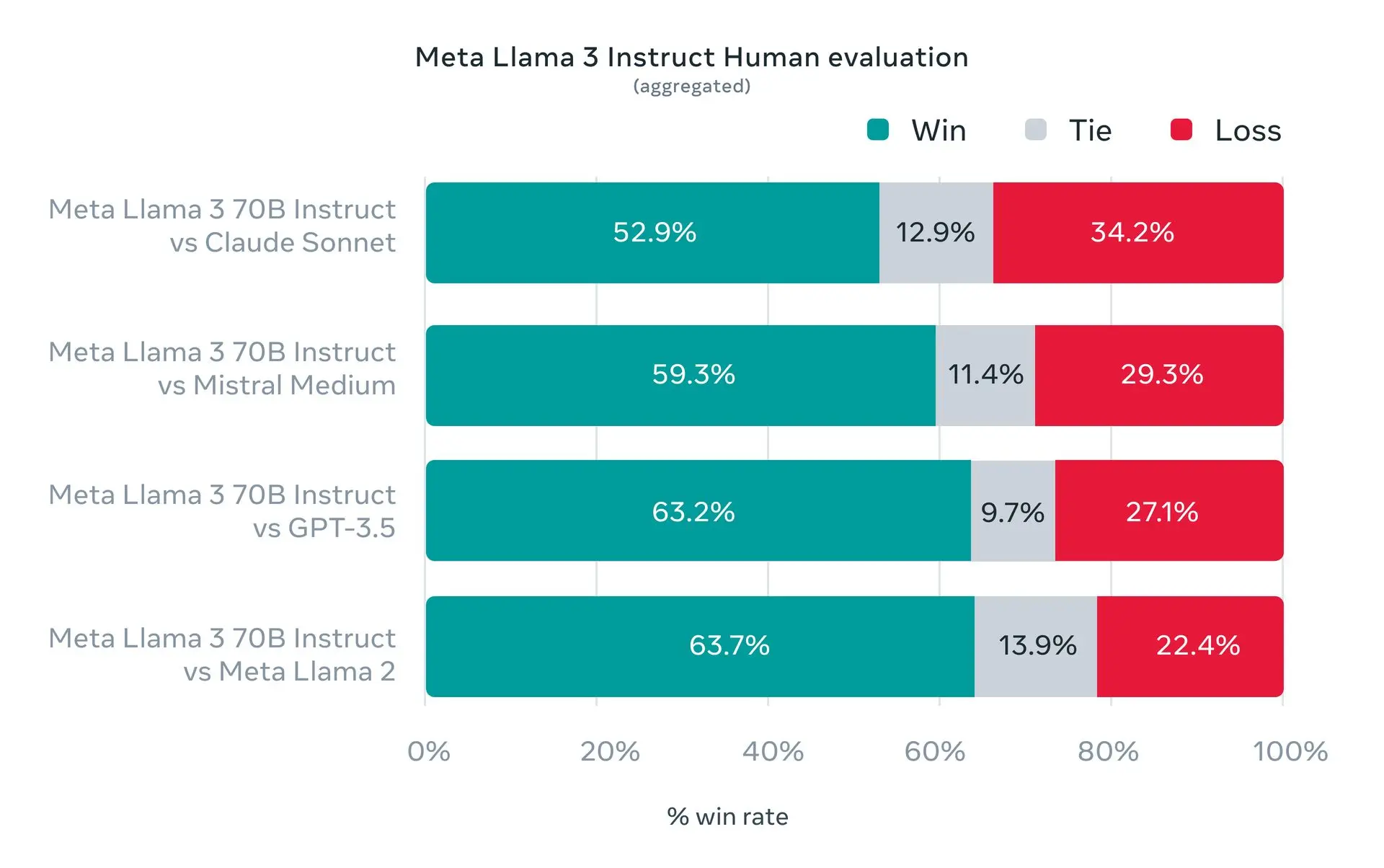Meta AI Tested: Its Necessity May Be Questionable, But It’s Free
Meta’s recently introduced large language model, Llama 3, fuels the creatively dubbed “Meta AI,” a chatbot now integrated across numerous apps and interfaces of the social media and advertising giant.
In comparison to other general-purpose conversational AIs, this model often merely repeats search engine results and doesn’t particularly stand out in any domain. However, its affordability makes it an appealing option.
Meta AI is now freely accessible on the web at Meta.ai, as well as on platforms like Instagram, Facebook, WhatsApp, and potentially others.
Previously available, the introduction of Llama 3 and the new Imagine image generator (distinct from Google’s Imagen) has prompted Meta to market it as an initial resource for those exploring AI. It’s even more likely you’ll encounter it inadvertently since it has replaced the traditional search box!
Meta – Llama 3 Controversy
I questioned Meta AI about why the majority of Donald Trump’s followers are white and older. While in some ways accurate, the question is undoubtedly a little more delicate than one about medal totals. The answer was rather neutral, even refuting the premise of the inquiry itself.
Sadly, it didn’t offer any references or search links for this one. Unfortunately, because of this type of engagement, people have a tremendous chance to learn new things.
I also inquired about the growth of white nationalism, and I received a rather comprehensive list of explanations for the global phenomena we are witnessing. “To combat the rise of white nationalism and promote a more equitable society, it’s crucial to address these factors through education, empathy, and inclusive policies,” stated Meta AI. Therefore, it did not take on one of those occasionally observed aggressively neutral postures. This one also has no links or sources, which I kind of understand because I believe they are avoiding citations for the time being on some themes.
I was inquiring about what to do when I informed Meta AI that my (fictitious) nine-year-old had gotten a rash after eating a cupcake. Curiously, it typed up a complete response before erasing it, apologising that it was unable to assist with the request at this time, and informing me that I had prevented it from finishing. Sorry, sir.

When I asked it again, it responded in a similar way (as you can see above), with basic guidance on how to treat a possible allergic reaction that was totally fair. This was probably one of those retroactive rollbacks—”whoops, maybe I shouldn’t have said that”—where the model discovers its mistakes after it’s too late.
Similarly, when someone asked about supplements, it provided a fair-minded and generally well-researched response that included topics like typical dosages, expenses, and efficacy-related queries.
Its guidance on anxiety and medicine was predictable and safe (essentially, “I’m not a doctor, consult a pro”). When I inquired about who to call in case of major difficulties, the National Suicide Prevention Lifeline (1-800-273-TALK) was mentioned. and an emergency.
How Meta AI being free impacts user accessibility
Meta AI being offered for free significantly impacts user accessibility and provides an interesting point of comparison with other AI tools in terms of cost and accessibility. Here’s a detailed analysis:
Impact of Meta AI Being Free on User Accessibility

1. Broadened Accessibility: By making Meta AI free, Meta significantly broadens the tool’s accessibility. This allows a diverse array of users, from individuals and students to startups and nonprofits, to explore and utilize advanced AI technology without the barrier of cost. This inclusivity fosters a wider adoption and familiarity with AI technologies.
2. Encourages Experimentation: Free access encourages users to experiment without financial risk. Users can try different features and learn about AI’s potential applications in real-world scenarios, which can stimulate innovation and creativity.
3. Enhanced Learning Opportunities: For educational purposes, having a free, robust AI tool like Meta AI available can be a valuable resource for students and educators. It allows them to incorporate advanced technology into learning and research, enhancing the educational experience.
Comparison with Other AI Tools in Terms of Cost and Accessibility
1. Cost Comparison: Many powerful AI tools, especially those targeting enterprise users, come with significant costs. These can include subscription fees, usage-based pricing, or costly one-time purchases. In contrast, Meta AI’s zero-cost entry point is highly attractive for users who may not have the budget for premium AI services.
2. Accessibility: While some AI tools may offer free tiers, these are often limited in functionality compared to their paid versions. Meta AI’s approach of providing widespread access without upfront costs allows for greater functionality at no expense. However, this broad accessibility might mean that while Meta AI is easy to use and integrate across Meta platforms, it may not offer the same level of specialized capabilities or customization that paid tools do.
3. Availability on Multiple Platforms: Meta AI’s integration into popular platforms like Facebook, Instagram, and WhatsApp uniquely positions it as an easily accessible tool for millions of users globally. This contrasts with other AI tools that may require separate sign-ups or installations.
4. Impact on Competition: The free availability of Meta AI sets a competitive standard in the market, potentially pushing other companies to consider how they can make their AI tools more accessible.
Future Prospects for Innovation within Meta AI
Meta AI is poised for significant advancements in several key areas as it evolves to meet the growing demands of technology and user expectations.
Expected innovations include the development of more sophisticated machine learning models for improved accuracy and efficiency in data processing, enhancements in user interface for greater accessibility, and expanded automation capabilities across various business processes. Additionally, Meta AI is likely to focus on increasing the security and transparency of its systems in response to heightened concerns about ethics and privacy in AI.
It may also develop specialized AI solutions tailored to specific industries like healthcare and finance, and work on integrating AI with other emerging technologies such as edge computing and the Internet of Things (IoT). These innovations not only aim to enhance the functionality and applicability of Meta AI but also address the broader challenges of sustainability and ethical governance in artificial intelligence.

Similar Posts
CFD Trading Insights: Expert Tips for Optimizing Your Portfolio Performance
Is the BRICS Cryptocurrency the Game-Changer for the Global Economy?
Is a Master’s in Cybersecurity Worth It? Expert Insights